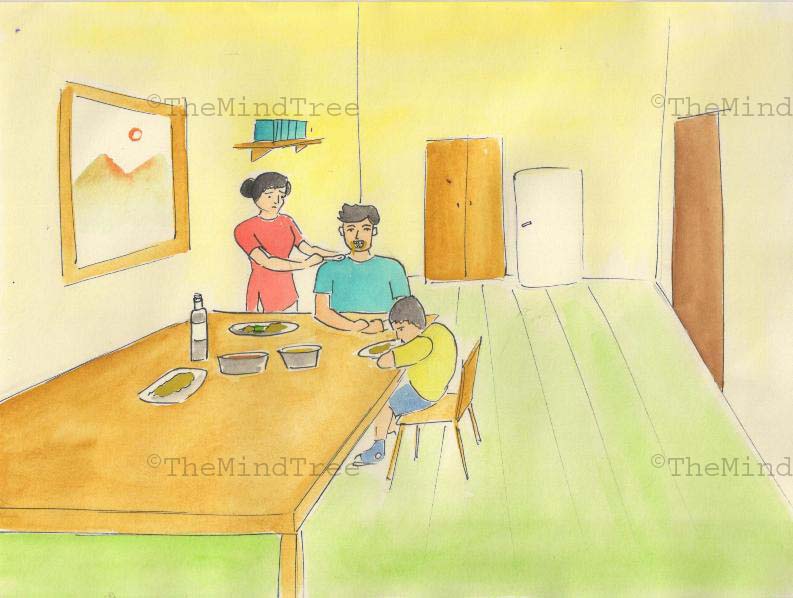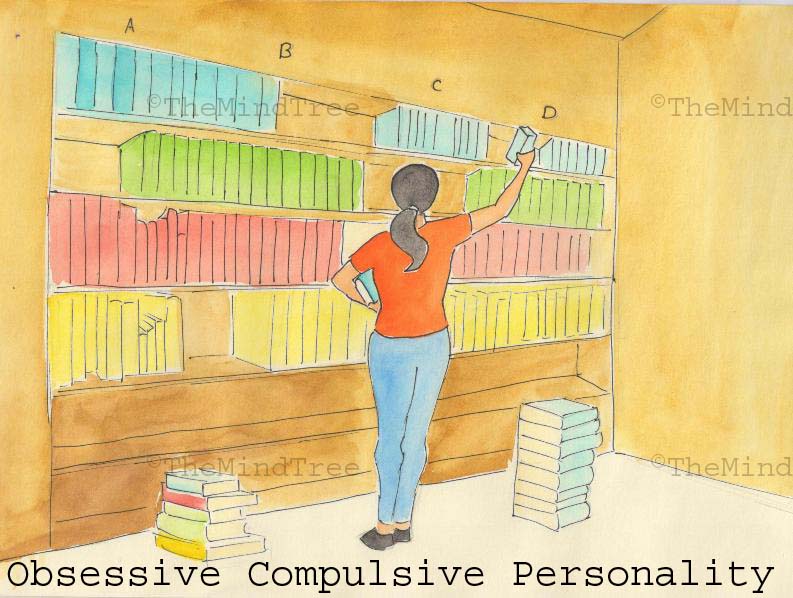Cluster C

SYMPTOMS
5 or more of the following symptoms should be persisting in a person to be diagnosed under dependent personality disorder:
- Has difficulty making everyday decisions without an excessive amount of advice and reassurance from others
- Needs others to assume responsibility for most areas of his or her life
- Has difficulty disagreeing with others, because of excessive dependency on them
- Has difficulty initiating or doing things on his or her own
- Goes to extreme and excessive lengths to gain support of others, including doing things which are unpleasant in nature
- Feels anxious and uncomfortable when alone, because of fears that he she cant take care of one self
- They quickly seek another relationship for care and support as soon as one close relationship falls apart
- Is unrealistically preoccupied with fears of being left to take care of himself or herself
As the name suggests Dependent Personality Disorder categorises individuals who are excessively dependent on others for their daily and decision making.
Dependent personality disorder sets in from early adulthood and behaviour of such people often becomes clingy and they become emotionally and physically dependent on a few selected people.
They become so parasitical on others that it becomes impossible for these people to perform daily functions like what clothes to wear, which route to go from, what hairstyle to make, they want others to assume responsibility for them as they feel they are incapable to take care of their own selves.
As a result they have limited social relations to people on whom they are dependent upon and any criticism of them makes them feel worthless and damages their self confidence and esteem even further.
They avoid responsibilities which seriously hampers their professional life at office or school and also personal life where they tend to cling onto people and become overly dependent on them without showcasing any responsibility or maturity.
Case Studies
Mr S Y, age 36 came along with his wife A Y, he looked older than his age and wore a loose T-shirt and jeans. Their relationship has strained continuously and A Y looks visibly exhausted. An ordinary day in this couple’s life starts with A waking Mr. S up in the morning, followed by helping him in taking bath and getting dressed up, after that she makes and serves breakfast to him and then she drops him at his office. He frequently calls Mrs A from the office to ask about his work difficulties, at what time to eat lunch and he also cries often as he feels lonely in office. He has gone without a promotion, since he started working 10 years back. After the office hours are over, Mrs. A Y pick him up from the office and they come home. MR. S Y doesn’t take any decision on his own, like what clothes to wear, what to eat for dinner and when to sleep. A feels she is living with a kid, who is undecided, irresponsible and clumsy. She is sexually dissatisfied and is fed up with the clinging behaviour of Mr. S Y, a condition which she thought will improve, but has worsened since they got married.
Facts

SYMPTOMS
4 or more of the following symptoms should be present in a person to be diagnosed under obsessive compulsive personality disorder:
- The person is preoccupied with details, rules, lists, order or schedules to the extent that the major objective of the activity is lost.
- Perfectionism is more important, than completing the work on time
- Is excessively devoted to work and productivity over leisure and relationships
- Is inflexible about matters of morality, ethics or values
- Is unable to discard worn-out or worthless objects even when they have no sentimental value
- Is reluctant to share and do tasks with others unless they submit to his/her ways and demands
- They are very apprehensive about the future, so when it comes to money they have high hoarding tendency so they avoid even buying basic commodities sometimes
- Is highly rigid and stubborn
Facts
A person with Obsessive Compulsive Personality Disorder doesn’t have unwanted thoughts like in the case of obsessive compulsive disorder; in this a person believes their thoughts to be right and justified.
A person under OCPD condition is too concerned about orderliness and perfectionism and gives excessive attention to details while thinking of performing a given task.
They have temper issues if they can’t control the environment, as a result they withdraw themselves emotionally from that situation altogether.
If we analyse their personal relationships, they have a problem in sharing or maintaining a close relationship, they are formal even in personal environment settings. They have excessive devotion for work hence having a poor life-work relationship.
These peoples main concern is to control their external environment and follow their rigid routines at all costs; they are uncomfortable in an environment where people express their emotions freely.
They are obsessed by rules and regulations and maintaining things orderly.
Case Studies
The patient was a 38 year old V N a financial advisor for a MNC; he came with his wife S for marriage counselling. His wife complained of his long working hours and emotional coldness, but as the conversation went further she opened about his obsession for wanting things perfectly, and his habit of picking out flaws in almost everything like food, bed sheets, order of things kept in the shelf or even her dressing style. Mrs S continues that he doesn’t spend time with their children and his little interest in sexual activity has caused a further rift in their marriage. Mr. V N on the other hand states that he is content with their marriage and has no problems with S and further justifies that he works for long hour for the future of their children. When asked about his work, he states that he finds his junior employees disorganised and they lack the dedication required to do thing in the right way, he prefers to work alone and can’t tolerate any mistakes in the work submitted to him by his associates. When asked about his boss, he stated he has respect and admiration for him, he is a perfectionist, Mr. V N sums it up by saying that. He is diagnosed with a Obsessive Compulsive Personality Disorder.

